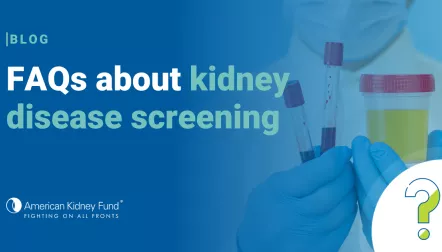
Blog post
A caution about self-medication for people living with kidney disease

Glance at any dialysis discussion board and you will find many questions about dietary supplements and alternative drugs, including medical marijuana. While seeking out information is an important part of being empowered to fight kidney disease, the internet is full of doubtful claims and outright false information. People living with kidney disease need to be able to separate fact from fiction — and to understand that supplements and alternative drugs can interact with prescribed drugs or cause harm in other ways.
During the American Society of Nephrology's Kidney Week conference in October 2018, researchers shared their findings from a recent study on marijuana (or cannabis) use and its effects on kidneys. The research was led by a team at the Icahn School of Medicine at Mount Sinai in New York, who studied kidney disease progression in cannabis users. They found that among people living with kidney disease, kidney function declined faster in those who used cannabis than in those who did not.
Joshua L. Rein, DO, who led the study, told Healio's Nephrology News & Issues that people living with kidney disease who are using cannabis should be aware of potential effects on their kidneys. He said some people may be using it to treat some of the symptoms of their kidney disease, explaining, "Patients with kidney disease experience significant symptom burden." Symptoms such as nausea, lack of appetite and chronic pain "are all valid issues for medical marijuana usage."
The study did not show cannabis to cause kidney disease, or a decrease in kidney function in people who are not already living with kidney disease. Rein believes additional research into the effects of cannabis on people living with kidney disease, and on kidney health in general, is needed.
People living with kidney disease should discuss all the supplements and drugs they are taking with their doctors and members of their care team. A prescriber of medical cannabis is likely not a nephrologist and may not be familiar with recent research on kidney disease and marijuana. Legal recreational cannabis does not require a doctor's prescription or approval at all, but it is still important for doctors to know that their patients are using the drug. You can find helpful information on how to more effectively communicate with your doctors by watching our Tips for talking with your doctor webinar on our website.
A growing number of states are legalizing medical marijuana, and some have made it legal for recreational use. But just because a drug is legal, that does not make it safe, or a good idea, for people with kidney disease.





